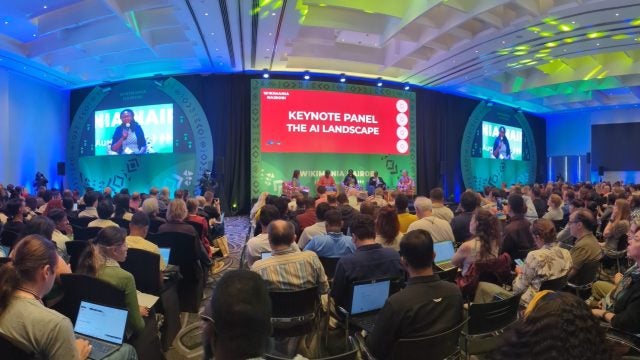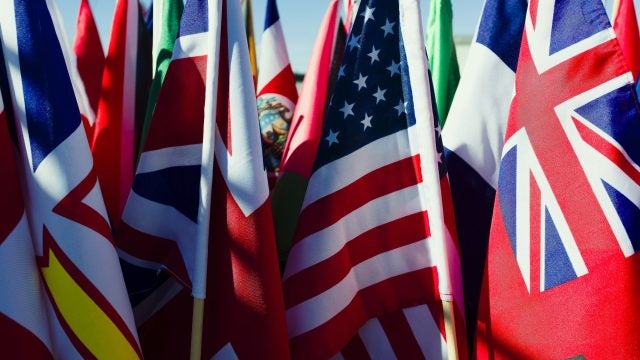
Title: Policing Without a Political Plan? The New UN-Backed Mission in Haiti
In early October 2023, the United Nations Security Council approved a new Kenyan-led international policing mission to Haiti. That mission will face steep challenges to achieve its mandate of helping to address rampant gang violence and insecurity in Haiti. Even if this intervention helps stabilize Haiti in the short term, its longer-term impact will depend on the development of a credible political roadmap for the country.
On October 2, 2023, the United Nations Security Council approved an international policing mission for Haiti, a country whose weak, unelected government and ailing national police force are being overwhelmed by rampant gang violence. For the past year, Haitian Prime Minister Ariel Henry has asked for foreign intervention to restore order. Consequently, with encouragement from the Biden administration, Kenya pledged to send 1,000 police officers to lead a new Multinational Security Support (MSS) mission to restore order and enable free and fair elections in Haiti. The MSS is the latest in a series of UN-authorized missions to Haiti since the mid-1990s; it will place international police on the front lines of law enforcement alongside their Haitian counterparts. To help stem the violence and enable new elections, the MSS will need competent officers to fill clear roles and responsibilities, apply appropriate policing methods, win Haitian public trust, and be held accountable for any wrongdoing. Even if the mission provides short-term security benefits, however,
Haiti undeniably needs assistance as it endures one of the most severe crises in its history. Haiti’s government has crumbled since the July 2021 assassination of President Jovenel Moïse, after which the current prime minister, Ariel Henry, took power without an election. Henry’s official term ended in early 2022, and he has since postponed elections, governing without a constitutional mandate or any remaining elected officials. As democratic institutions have failed, gangs have violently competed for territory, resources, and power. These gangs routinely target the Haitian National Police (HNP) and have killed roughly one hundred officers since the Moïse assassination in 2021. The beleaguered HNP has failed to stem the tide of murder, arson, and kidnappings and has dwindled to just 9,000 officers in a country of over 11 million—in contrast, 36,000 officers serve the 8 million residents of New York City. These challenges have been exacerbated by a cholera outbreak, deadly earthquakes, and economic strife, compounding Haiti’s humanitarian crisis. In response to this violence, UN Security Council Resolution 2699 has entrusted the MSS with helping the HNP counter gangs, restore security, and create conditions for free and fair elections. Importantly, the Security Council has given the MSS temporary executive policing authority in Haiti, including the powers of detention and arrest.
Historically, similar international policing ventures have been implemented to support law and order in several fragile states. Since the early 1990s, UN peacekeepers and police have shared law enforcement power with local forces in Cambodia, Bosnia, Kosovo, Timor-Leste, and the Central African Republic. In the Solomon Islands, an Australian-led mission did the same. International policing has also taken place in Haiti. For example, U.S. troops and UN civilian police conducted patrols in the mid-1990s when the HNP was just being established. Beginning in 2004, UN peacekeepers conducted extensive joint operations with the HNP as part of the UN Stabilization Mission in Haiti (MINUSTAH), including an armed anti-gang campaign. U.S. forces returned briefly to help restore public order in 2010 after Haiti’s devastating earthquake. In Haiti and elsewhere, these international policing missions have worked well at times. They have helped provide short-term security for political reconstitution in the Solomon Islands in 2003, Timor-Leste in 2006, and arguably Haiti in the mid-1990s. Given the current dire political, economic, and social circumstances in Haiti, the MSS may represent the best hope for short-term stabilization.
However, effective international policing requires overcoming the steep technical and political challenges of carrying out local law enforcement jointly with local police. Many missions have struggled to integrate international and local police forces and failed to navigate the political challenges associated with “sharing sovereignty” over core law enforcement functions. To have lasting effects, international policing also has to serve a viable long-term political plan. For the MSS to succeed in Haiti, several challenging conditions must be met.
First, an effective mission requires a sufficiently large, competent, and well-funded force over a sustained period. The Biden administration has offered up to $200 million to support the MSS but has also declined Haitian requests for U.S. personnel, pressing other actors to step forward. Kenya’s commitment is already wavering, as the incumbent government of William Ruto faces domestic backlash. Opposition leader Raila Odinga has argued that Kenya has “enough problems” of its own and that a police mission will not resolve a fundamentally political issue in Haiti. Shortly after the mission’s approval, the foreign minister who championed it was demoted to a lesser position, and a Kenyan court has put the plan on hold. Some of Haiti’s Caribbean neighbors have expressed willingness to supplement the force, but their commitment remains uncertain. These developments have put the mission in limbo.
Second, assuming they deploy, MSS personnel will need clearly delineated roles and responsibilities. Initially, the international police were intended to protect Haitian government buildings and other key sites—a form of “particularized protection.” However, their mandate was later expanded to include a much wider array of anti-gang and public order functions. In this expanded role, the MSS must avoid clashing with the HNP. Working closely with the HNP has proven challenging for international personnel in Haiti in the past. Haitian officers generally have resented sharing their authority, and local and international officers have struggled to communicate and coordinate their responses to ongoing crimes.
Third, the MSS must earn acceptance from the Haitian public. The MSS’s national composition may help initially. Since Haiti has a long history of colonial rule and foreign exploitation, Kenyan officers may receive a warmer welcome than American, French, or Canadian forces. However, support is not guaranteed: Kenyan officers may enjoy a “cushion of acceptance,” but Haitians will wait to evaluate their performance in the field. During MINUSTAH, a Brazilian-led force was initially welcomed but lost Haitian public support when performance problems mounted. Past missions have also suffered when officers have failed to communicate with the HNP and the public in French and Creole, a challenge that most Kenyan officers will face as well. Establishing a consultative council with a diverse array of Haitian civil society actors would signal the mission’s commitment to learn from local perspectives. Creating a formal outreach program through which international police could educate Haitian civilians about the purpose and functions of the mission would also help.
Fourth, the international officers must use effective and appropriate policing methods. In recent peacekeeping missions, police generally have employed paramilitary tactics, with soldiers and military police carrying out SWAT-style and riot control operations to uphold public order. This style may serve short-term security interests, but involving international actors in the use of force in the past has been a slippery slope. MINUSTAH lost public support in Haitian communities that accused peacekeepers of using excessive force. When international police use excessive force, they risk alienating some communities and legitimating the domestic use of heavily armed, paramilitary forces to buttress incumbent political power. Human rights groups have questioned the choice of Kenyan police, citing evidence of police abuses in Kenya, such as extrajudicial killings and enforced disappearances. Resolution 2699 rightly envisages a thorough vetting process for officers, but implementing such a scheme will not be easy, particularly when it conflicts with U.S. and UN pressure to move officers quickly into the field. Furthermore, because officers are often needed in their home states, the MSS may struggle to secure qualified officers—a recurring challenge for international policing missions.
Fifth, in light of possible abuses, both on and off duty, the MSS must have stronger accountability mechanisms than those of past peacekeeping missions in Haiti. MINUSTAH peacekeepers were greatly discredited by a series of several scandals: the spread of cholera by Nepalese peacekeepers, cases of sexual abuse, and abandoned children. The weak UN response to these scandals greatly undermined the mission. Although Kenyan police will not be officially under UN command, UN officials must promote accountability if scandals arise. The traditional peacekeeping practice—simply sending accused personnel home to face disciplinary action—will not suffice. The governments that send troops and police on peacekeeping missions have a notoriously poor track record of holding their own personnel accountable. Locally accessible reporting mechanisms, on-site international personnel with the authority to investigate alleged abuses, and UN penalties on countries that do not hold their forces accountable are imperative.
Lastly, and perhaps most importantly, long-term political initiatives accompany the MSS. Policing has long been closely linked to politics in Haiti, where elites have relied on security forces to quell their opposition. International involvement in anti-gang campaigns has been controversial partly for that reason, raising Haitian accusations that UN forces were siding with government forces to weaken opposition movements. To some, the planned Kenyan-led international police force represents yet another U.S. and UN-backed effort to exercise political control by buttressing favored local political elites. Addressing these concerns will not be easy, especially since the MSS is being dispatched at the request of an unelected leader with abysmal public legitimacy. Haitians must see that the U.S. government, the United Nations, and other key actors are taking concrete steps to empower a Haitian-led political transition. That means pressing the Henry government to engage earnestly with civil society leaders and opposition groups to begin re-staffing vacant public offices and to devise a roadmap toward democratic elections.
To succeed, the MSS must receive sufficient funds, understand its responsibilities, win public support, and ensure self-accountability. If these conditions are satisfied, the mission could help curb violence and create space for constructive political dialogue. However, in addition to the MSS, the international community must commit over the long term to help Haitians devise a political path toward democracy. Without a broader plan in place, the MSS’s impact will be fleeting.
…
John D. Ciorciari is a Professor at the University of Michigan’s Gerald R. Ford School of Public Policy and a 2023-24 Academic Visitor at St. Antony’s College, University of Oxford. He is the author of Sovereignty Sharing in Fragile States (Stanford University Press, 2021), among other works.
Image Credits: flickr
Recommended Articles

This article compares U.S. and Chinese approaches to artificial intelligence (AI) exports in Africa and examines how these disparate approaches have produced both downstream benefits and challenges for the region.

On May 20, 2025, the World Health Assembly unanimously adopted the World Health Organization (WHO) Pandemic Agreement, an international treaty designed to strengthen pandemic prevention, preparedness, and…

As the Trump administration proposes a sweeping overhaul of the US foreign assistance architecture by dismantling USAID, the Millennium Challenge Corporation (MCC), and restructuring the State Department, there is an…